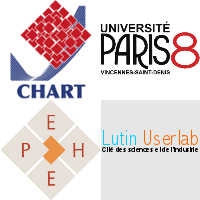Thursday, 5th of June Bâtiment Le France, 10h-12h, SALLE 123, EPHE, 190-198 avenue de France, 75013 Paris
10h – Masasi Hattori, Ph.D. Professor, Department of Psychology, Ritsumeikan University, Kyoto, Japan
“Subliminal problem solving: Dual process of cognition and their interaction”
Abstract:
Many theorists in psychology have raised the issue of duality of mental processes. Human cognition is widely seen as consisting of two different kinds of processes: automatic, heuristic, intuitive, and unconscious process, and controlled, systematic, analytic, and conscious process. Here we refer them as implicit (unconscious) and explicit (conscious) processes. We, however, still only have little knowledge about the interaction between these two processes. In this talk, first, I introduce some new methods that we have developed so far to probe human implicit processes while they are solving problems. Second, I show some paradoxical phenomena revealed by experiments using the new method and I address some issues. Finally, I propose hypotheses to account for dynamics of implicit and explicit processes suggesting future directions of further research on the interaction between the two different still related processes.
_________________________________________________________________
11h – Ikuko Hattori, Lecturer Department of Psychology, Ritsumeikan University, Kyoto, Japan
“Reasoning and Background knowledge”
Abstract:
In deductive reasoning, the premises are assumed to be true. However, human reasoning is affected by its contents and contexts. Then it would be essential to incorporate the relevant background knowledge derived from the long-term memory (LTM) during processing information. We know that everything around us are uncertain in greater or lesser degree. In this talk, I will introduce some experimental results using conditionals and causal reasoning to show how background knowledge influence on our reasoning. The incorporation of knowledge, however, demands cognitive resource and time. The fastness of reasoning is sometimes incompatible with the exactitude. To control an excessive retrieval of LTM should be an important factor for pragmatic intelligence. Secondly, I will talk about a possible heuristic mechanism to suppress unnecessary retrieval during reasoning.

